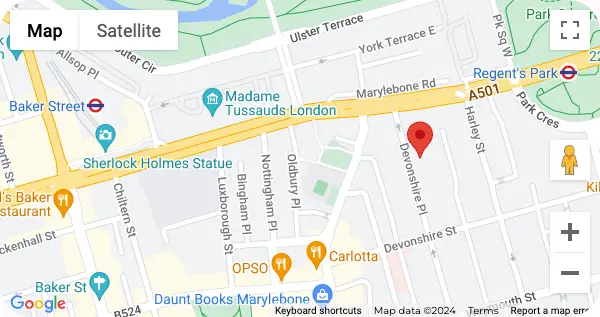Introdcuction
Ozempic has recently created a buzz in the UK market as a drug that controls type 2 diabetes and helps in managing weight loss. How does Ozempic work in the body? Behind such popularity is the fact that there is a category of drugs called GLP-1 receptor agonists, which affect metabolic and hormonal pathways in an attempt to modulate blood sugar levels and curb hunger. We will dive deep into its mechanism of action in this article. Read on.
Are you a medical aesthetician who wants to know more about the side effects of such a type of data as “Ozempic face”, or a patient interested in the effects of GLP-1 drugs on the body? Then this informational article will shed research-based light on the matter.
What is Ozempic?
Semaglutide is a medication with the brand name Ozempic that belongs to a family of drugs known as GLP-1 receptor agonists. This type of medication imitates a naturally occurring hormone in the body known as glucagon-like peptide 1 (GLP-1) that is very critical in regulating blood sugar levels as well as controlling the appetite.
In contrast to insulin, which directly reduces the level of glucose in the blood, the GLP-1 receptor agonist promotes the normal natural control of blood sugar. They enhance the work of their own insulin in the body and reduce glucose overproduction. The fact that Ozempic is injected once a week makes it a convenient medication method among many patients.
Indications for Use
In the UK, Ozempic is approved for adults with type 2 diabetes to reduce blood sugar levels, particularly when diet and exercise have not been effective. People who are diabetic with existing heart problems can benefit from Ozempic because it can prevent or minimise the risks of developing cardiovascular issues like heart attacks or strokes. Although it is still not approved as a weight loss medication in the United Kingdom, doctors are prescribing it off-label to manage obesity or overweight in individuals.
How does Ozempic work?
Ozempic functions as an imitation of GLP-1, the hormone released in the intestine following the consumption of food. There are various actions of the hormones, which, in combination, regulate the level of sugar in the blood and appetite:
- Increases the release of insulin in response to elevated blood sugar levels.
- Inhibits the release of glucagon, a hormone that raises blood glucose.
- Decrease gastric emptying, making sugar introduction into the blood less quickly.
- Increases the sensation of fullness by acting on the brain’s hypothalamus.
Besides the blood sugar and appetite regulations, the mechanism of action of Ozempic would improve long-term metabolic stability. It’s binding with GLP-1 mimics the latter, such that it increases insulin release as the blood sugar level increases, as well as ensuring that, after meal times, sudden spikes do not occur. The decrease in gastric emptying will slow nutrient retention to minimise blood sugar spikes after a meal. It enhances a long-lasting sense of satisfaction and suppresses desires through its effect on the appetite centres of the brain. This effect, in combination with others, can control the level of sugar in the blood and help people not only to reduce their weight but also to maintain it, so Ozempic is an effective drug to overcome type 2 diabetes and obesity.
Ozempic and GLP-1 Receptor Agonism
When the semaglutide binds to GLP-1 pancreatic receptors, it increases the amount of insulin that arrives in the bloodstream when the blood sugar is high. In other words, it helps the body to release insulin only when sugar levels rise. This lowers the possibility of hypoglycaemia compared to other drugs for diabetes.
It also decreases glucagon output in the alpha cells in the pancreas. Glucagon is a type of hormone that usually activates the liver to generate and release glucose into circulation. By controlling the process, Ozempic can help prevent the release of too much glucose in the body.
Managing Blood Sugar Levels
Ozempic (semaglutide) aids in balancing blood sugar by helping the body respond to insulin better. It increases the ability of insulin, decreases the levels of HbA1c, and suppresses glucose liver production.
When individuals have type 2 diabetes, there is an elevated level of sugar in their blood, otherwise referred to as blood glucose. High blood sugar occurs when the insulin in your body fails to be as efficient as necessary. Ozempic is used to prevent the increased level of sugar in your blood. This drug in your body behaves similarly to an active compound named GLP-1. It will get your body to produce more insulin once you have had a meal, it will stop the release of stored sugar in your liver, and it will also slow the movement of food around your body.
Insulin Release and Sensitivity
Ozempic drugs make pancreatic beta cells more responsive to beta glucose; hence, in a more effective manner, in releasing insulin. Insulin sensitivity can also be achieved with Ozempic over a long period of time by decreasing the required dose of insulin to decrease sugar circulation in the bloodstream.
How Does Ozempic Work for Weight Loss?
GLP-1 drug, which includes Ozempic, where initially applied in the treatment of type 2 diabetes, but has also been found to effectively treat obesity. And they not only suppress appetite but also help to reset the systems that regulate weight in the body.
Ozempic works on metabolic pathways and assists your body in controlling your fat storage and consumption. It decreases the chances of fat accumulation by enhancing insulin sensitivity and reducing blood sugar. This gradually results in fat loss over a prolonged period, specifically at the belly level, with a positive contribution to long-term weight and health results.
Decreasing Appetite
Ozempic works on a certain part of the brain, especially the hypothalamus, which regulates the level of hunger and satiety. It also makes you feel fuller and minimises your cravings, and you end up having fewer amount of calories accidentally, without it seeming that you are starving yourself.
In addition to food intake reduction, Ozempic can assist individuals in overcoming binge eating. Through the decreased food-stimulated desires and the increased feeling of satisfaction of consuming less, it is now less difficult to adhere to a healthy diet, even during periods of stress or in social eating scenarios.
Slowing Gastric Emptying
The slowing of digestion contributes greatly to weight loss, just as blood sugar control regulates weight. You get more satiety that lasts longer,r so you are not tempted to snack or eat a large portion. In clinical trials, lots of individuals consuming Ozempic shed 5-15% of their body weight in a few months, particularly with lifestyle adjustments such as food consumption and physical activities.
When the stomach is taking too long to empty, your body takes sufficient time to assimilate the nutrients and monitor the appetite hormones effectively. This lasting fullness also aids in decreasing late-night appetite or the necessity of several meals per day. In the long run, such a change in the eating rhythm may result in sustainable weight loss.
Initial Effects
The first week of Ozempic usage can provide benefits to most people who experience an improvement in their blood sugar levels. Although this impact does not come immediately, the medication is fast in assisting with the balancing of glucose. Ozempic improves the insulin release when the blood sugar level is high and suppresses the excessive production of glucose by the liver. The suppression of appetite may also be experienced earlier on in some people, and this may aid proper control of meals. Such initial adjustments usually encourage the user to remain compliant with his or her treatment plan.
Long-term Benefits
Where weight loss is concerned, things are slower. A subtle alteration in appetite may be noticed after the initial few weeks. Though significant weight loss can only be achieved after several months. The majority of physicians check the improvement at the 3- and 6-month points.
Remember: It’s all about consistency. Missing doses or failure to take your medication as directed by the doctor may affect your outcomes.
Ozempic is also used to balance the set-point weight of the body; hence, long-term weight loss is sustainable with continued use. Reduction in portions (and cravings) is frequently mentioned by the patients as contributing to making their food choices healthier in the long run. Motivated by exercise and adequate nutrition, these alterations result in gradual, permanent changes in weight and metabolism.
Effective & professional doctor-led Ozempic at our central London clinic
Verified Before & After
Verified Before & After
Ozempic Side Effects
Just as with any medication, Ozempic does not lack the possibility of side effects. Good news? Most of them are mild and tend to diminish with time.
Common Side Effects:
- Nausea
- Vomiting
- Diarrhoea
- Constipation
- Mild Fatigue
Serious Side Effects:
- Although rare, you should be aware of more serious side effects :
- Pancreatitis (inflammation of the pancreas)
- Kidney Disease (especially when one already has kidney issues)
- Thyroid Tumours (Evident in the animal research; human relevance is under investigation.
In case of extreme stomach pain, breathing problems, or the occurrence of a lump in your neck, consult your doctor right away. Your doctor may give or prescribe a different treatment if Ozempic causes you a serious allergic reaction.
Summary of Key Points
Ozempic contains the effects of imitating a natural GLP-1 hormone, which contributes to:
- Increase insulin and inhibit glucagon, and hence decrease your blood sugar level.
- Reduce the rate of digestion to encourage fullness and avoid blood sugar from reaching a high level.
- Decreasing appetite by influencing your brain.
- Encourage weight loss as a supplementary advantage.
All these factors can greatly help patients with type 2 diabetes as well as lose excess weight for most people with obesity or over weight.
Future Research Directions
Even now, scientist works on a new way of using semaglutide. They are looking for the possibility that these drugs can be used to treat heart failure and addiction. Depending on further data, it is possible that in the future, GLP-1 drugs will be more useful outside diabetes care.
FAQs
- How does Ozempic help control blood sugar levels?
Ozempic is a semaglutide (a GLP-1 receptor agonist) that assists in the management of blood sugar in patients with type 2 diabetes. It reproduces the effect of a physiological substance named glucagon-like peptide-1 (GLP-1) affecting glucose control. Following eating, the GLP-1 activates the pancreas in order to secrete insulin into the blood, whereas it also suppresses the secretion of glucagon, which increases blood sugar levels. These two effects assist in reducing the blood sugar post-meal. Ozempic also reduces the rate at which the stomach empties; that is, food rests in the stomach longer, and in the process, sugar enters the bloodstream slowly.
- In what ways does Ozempic aid in weight loss?
Ozempic will help to lose weight with the help of multiple ways. It also makes you feel full longer, which may ultimately lead to eating less food by decreasing the rate at which food is emptied from the stomach. It also has a link with the pituitary centre within the brain, aiding in reducing cravings and appetite in general. Ozempic decreases the portion size, with many users feeling full. Ozempic is not a weight loss medication, per se, but the clinical trials reveal that in a good number of patients, it brought weight loss to a great extent, especially when complemented by a healthy diet and exercise.
- How quickly can I expect to see results with Ozempic?
The effect is different according to the person, dosage, as well as the lifestyle, including eating habits and exercise. Regarding the control of blood sugar, there is a possibility that some individuals start feeling the difference in the first 1-2 weeks of taking the treatment process, particularly at the recommended weekly dose. Nonetheless, the full effect is usually seen after an average of 8 weeks or so, and the dosage is normally adjusted gradually. In weight loss, improvement is usually observed in a matter of months. In clinical trials, weight loss has been observed to continue decreasing in a 6-month or 1-year range with persisting effects upon the increment of lifestyle changes.
- What are the common side effects of Ozempic?
The gastrointestinal side effects are the most commonly reported. These include nausea, vomiting, diarrhoea, constipation, and abdominal pain. Nausea is common, especially within the initial weeks of treatment, but tends to go away as the body gets used to the drug. Additional side effects that may occur are tiredness, dyspepsia, and a slight increase in the heart rate. The majority of the side effects are self-controlled and temporary in nature; however, the patient is advised to contact his or her healthcare provider in case symptoms do not subside or worsen.
- Are there serious risks associated with Ozempic?
Yes, there are serious side effects, but they are rare. These are pancreatitis (inflammation of the pancreas), gallbladder complications, kidney damage, and diabetic retinopathy complications. There is also a boxed warning of the risk of thyroid C-cell tumours, presupposed by rodent cell studies, but there is no consistency as to whether this affects humans or not. Individuals with an existing condition or with a family history of Medullary Thyroid Carcinoma or Multiple Endocrine Neoplasia Syndrome type 2 should not take Ozempic. You should always tell your doctor about your complete medical history prior to taking treatments.
Reserve a GLP-1 appointment
One of our experts will be more than happy to answer any questions you have.
Book AppointmentAdam Lawler
★★★★★
Incredibly helpful, explained everything so clearly.
20th February 2026
Lara Davy
★★★★★
Dr. Omar was wonderful! Very friendly and kind and highly professional. He did a wonderful job and I will be back to see him again for sure.
20th February 2026
Grace Li
★★★★★
good for me !been here 8years
20th February 2026











